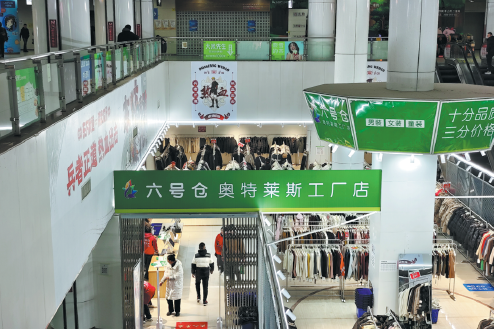China urges fair US policies to grow bilateral trade


China has urged the United States to adopt rational and pragmatic economic and trade policies to meet it halfway to support the healthy and stable growth of bilateral economic and trade relations, the Ministry of Commerce said on Thursday.
Shu Jueting, spokeswoman of the Commerce Ministry, responded to US Trade Representative Katherine Tai's recent remark that Washington is planning to more actively pressure Beijing on trade, and is preparing a "new approach" to that end. Shu said the US, as a member of the World Trade Organization, should ensure its trade policies and practices are in line with WTO rules, rather than unilaterally framing a new set of protectionist trade policies.
China and the US share huge common interests, and cooperation is the only right choice, Shu said at a regular media briefing.
Promoting the healthy and stable growth of China-US business relations will be not only in line with the fundamental interests of the two nations but is the common expectation of the international community.
Referring to the US Department of Commerce announcement on Monday it will move forward with an anti-dumping circumvention investigation of solar cells from Malaysia, Thailand, Cambodia and Vietnam, the commerce ministry official said this decision has been widely opposed by the photovoltaic industry in the US.
The US photovoltaic industry believes that any anti-dumping measures would seriously damage the construction process of photovoltaic power generation projects in the country, causing a major blow to its solar energy market, and directly affecting nearly 90 percent of the employment of its photovoltaic industry, Shu said. At the same time, any such measures would also undermine all parties' efforts to combat climate change in the US.
The US Department of Commerce made a decision to move forward with a probe into the assembly of crystalline silicon photovoltaic cells in four Southeast Asian countries based on claims that manufacturers use parts produced in China that otherwise would be subject to a tariff.
She reiterated that China hopes the US will avoid taking protectionist trade measures, maintain the stability of the global photovoltaic industry and supply chains, as well as promote cooperation in addressing climate change.
In another news conference held in Beijing on Thursday, Yu Yi, spokesman for the Beijing-based China Council for the Promotion of International Trade, said China has always supported the multilateral trading system centered around the WTO, respected the laws of the market, opposed protectionism, and aimed to promote the healthy and stable development of the global economy and trade.
Unilateral actions run contrary to the principles of market economy and international economic and trade rules, harm the interests of other countries as well as the US, and hurt the global supply chain, said Xue Rongjiu, deputy director of the Beijing-based China Society for WTO Studies.
As the US Federal Communications Commission added several Chinese and foreign companies to its list of communications equipment and service providers covered as alleged threats to US national security last week, Shu, from China's Ministry of Commerce, said the FCC's move is another attack on Chinese companies after the recent unprovoked revocation of their Section 214 operating licenses for telecommunications service providers.
She said China firmly opposes this action, because the US has generalized the concept of national security and includes Chinese companies in the so-called "untrusted tech supplier list" without any factual basis.
The US, Shu said, has restricted market access for Chinese companies' products and services, and abused state power to sanction and suppress them.



































